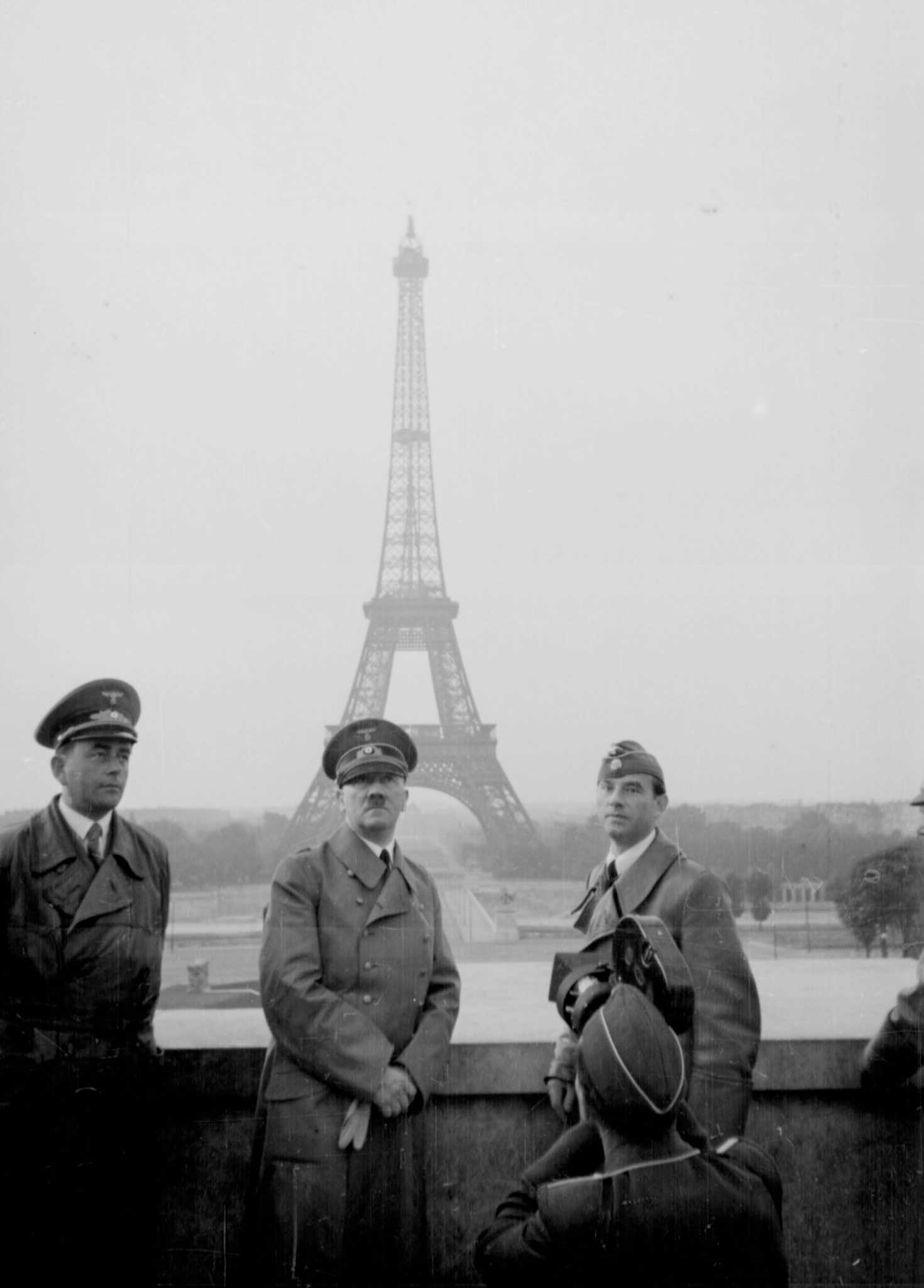When Paris Went Dark, The City of Light under German Occupation, 1940-44 by Ronald Rosbottom, book review
Remembering Paris's passive acceptance of Nazi occupation

My parents, who lived through the blitz, used to divide the nations of Europe into two categories – those who had fought "a good war" and those who had not. In the first camp were the Russians, Greeks, the Yugoslavs and ourselves. Heading the latter were the French. A tad simplistic, I thought at the time, but after reading Rosbottom's account of the German occupation of Paris, I wonder if they weren't right after all.
It is well known that the Germans virtually strolled into Paris in June 1940 without firing a shot. I didn't know some Parisians lined up to wave, impressed by the German soldiers' "correctness" and blond good-looks. Nor did I know that the Parisians snitched on each other over the following four years with quite such dedication.
Rosbottom devotes considerable space to Hitler's personal take on Paris, which is important because Germany's kid-glove approach to the City of Light – for the first two years of the occupation – was not a policy that evolved on site. The line came directly from the Führer. On 28 June, Hitler staged a personal visit to the French capital, to which he came not so much as conqueror as tourist. He stopped at the Opera and the Sacré-Coeur, paused to be snapped near the Eiffel tower and also allowed himself to be photographed staring reverently at Napoleon's tomb in Les Invalides. The tone of the visit sent out a message: Paris was not to be treated like other occupied cities. It was "one of the jewels of Europe", Hitler had declared, and it was to act as a showcase for what other countries in Europe could expect if they played their cards right.
The Parisians certainly did that. The city scarcely missed a beat. The police continued their patrols, schools continued teaching, artists dabbled away in their ateliers and the film studios continued to churn out movies.
The brothels did sterling business, helped by the fact that German soldiers on the Eastern front were encouraged to take time off in Paris, not to loot or kill, but to have fun. They were equipped with a little guide, which provided tips on how to navigate the metro and not get up the Parisians' noses.
Most Parisians, Rosbottom suggests, responded in kind. Crowds flocked to see a major anti-Semitic exhibition, "Le Juif et la France". They snitched like fury. When the Germans urged them to start informing on their neighbours, the result was information overload: Parisians deluged them with so much stuff that they felt overwhelmed. The police, loyal to the French collaborationist government, based in Vichy, were zealous in the performance of their duties. It was the Vichy police who rounded up Jews as young as two in a lightning raid known as Le Grand Rafle in 1942. It was they who herded them into a sports stadium, the Vélodrome d'Hiver, held them there in hellish conditions and then packed them off to their deaths in Germany. Rosbottom searches for evidence that some French police disobeyed orders, but in vain.
Inevitably, the most heart-breaking chapter is about the Jews. Two-thirds of French Jews lived in Paris and while some newer arrivals were poor, religious and kept themselves apart, many were prosperous and so assimilated that they were barely aware of their origins. Rosbottom quotes the diary of a schoolgirl, Annette Muller, who felt shocked on being told to wear a yellow star. "I was ashamed," she wrote. "I wanted so much to be like the others, good people, clean and proper."
Inevitably, those who set such store on being "good people" were easy targets. Many clung to a pathetic belief that their "correct" behaviour towards the Germans and the Vichy police would save them. They queued obediently for the dreaded stars and went equally passively to their deaths, waiting in their apartments for the doorbell to ring and for the police to take them away. Gerard Caspary, a survivor, recalled "the shrill sound of the bell – ringing, ringing, ringing", on the morning when they came for his parents. As Rosbottom notes, the strange entente between the Parisians and the Germans only broke down as the occupation went on and on – as the pretence faded that the Germans were only there as temporary visitors. But the impression gained from the book is that tempers only frayed seriously once the food began to run out.
Marcus Tanner's latest book, 'Albania's Mountain Queen', is published by I.B.Tauris
Join our commenting forum
Join thought-provoking conversations, follow other Independent readers and see their replies
Comments